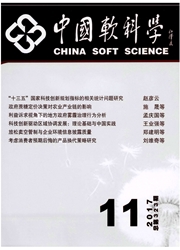

 中文摘要:
中文摘要:
本研究以国内某高科技集团公司位于北京、杭州等地七家分公司六百名知识员工为样本,基于资源保存理论构建了调节中介模型来解释心理资本对高科技企业知识员工离职意向的影响,并应用调节路径分析方法对该模型进行了验证。研究发现:(1)心理资本对离职意向有显著的负向影响;(2)角色压力在心理资本与离职意向之间起到完全中介效应;(3)组织支持不仅可以调节心理资本对角色压力的影响,而且还可以调节角色压力在心理资本与离职意向间的中介效应。这表明,心理资本通过降低角色压力来减弱员工离职意向,在这个过程中,组织支持增强了心理资本对角色压力的减缓作用,从而更加有效地发挥了心理资本在降低员工离职意向方面的作用,该作用机制对指导我国高科技企业的人力资源实践具有重要意义。
 英文摘要:
英文摘要:
In this study,a moderated mediation model has been constructed based on the resource conservation theory to explain the influence of psychological capital on employees' turnover intention,and the model has been tested by the survey conducted among 600 employees from seven high-tech companies located at Beijing and Hangzhou using moderated path analysis.The results show that:(1) psychological capital has significantly negative influence on turnover intention;(2) role stress fully mediates the influence of psychological capital on turnover intention;(3) organizational support moderates not only the influence of psychology capital on role stress,but also the mediating effect of role stress between psychological capital and turnover intention.These results mean that psychological capital can help to alleviate employees' turnover intention by reducing their role stress.During this process,the organization support strengthens this alleviating effect,which provides powerful insights to the human resource management practices.
 同期刊论文项目
同期刊论文项目
 同项目期刊论文
同项目期刊论文
 期刊信息
期刊信息
